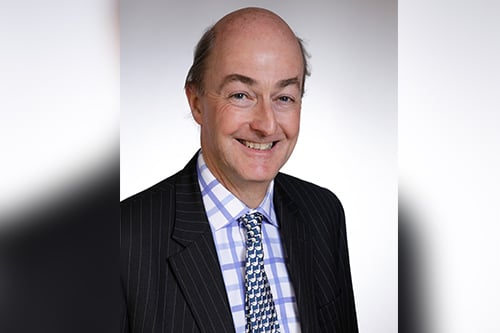

The COVID-19 pandemic has highlighted the need for insurance businesses to develop a comprehensive and accessible continuity plan and to invest in the digital processes which will allow this plan to succeed.
Lycetts Holdings Ltd can attest to the power of this long-term orientation, having recently reaped the rewards of its investment into staff recruitment and new IT systems to reveal record-breaking profits in 2019. Speaking with Insurance Business, Lycetts CEO Charles Foster (pictured) stated it has been rewarding to see the brokerage trending in the right direction once more. Almost £1.3 million profit is a great result, he said, and the business is delighted to see its hard work and careful investment pay off.
Read more: Lycetts enjoys record year
“The leading driver of this profit is the beginning of payback from investment into our general insurance broking-side IT platform, which has resulted in considerable efficiencies,” he said. “When people have left, we haven’t had to replace them, just to shuffle work around to fill those gaps. And there are processing efficiency gains in it, which is lovely to see.
“This has enabled us to continue to invest in people and premises. We’ve had three new office moves in 2020. So, we’re able to provide people with much-improved working conditions, which has all been very positive.”
This development was coupled with further growth in the form of Lycetts’ acquisition of fellow Newcastle-based broker Robertson-McIsaac. While this purchase contributed to the results of the business, Foster noted, it will have further significant impact on the results for 2020. Looking to the future, he highlighted that further acquisitions are not on the agenda for the business, but in the sense that they have never been on the agenda.
“We have been reactionary,” he noted, “when opportunities have come our way, we have taken a good hard look at them. And over the course of the last 17 years, we have acquired a number of bolt-on businesses. The Robertson-McIsaac purchase, I am very positive about because the previous owner wished to retire and that has meant his staff and plans can be integrated into our business very easily, and that’s all gone very well. And I’m not saying that we wouldn’t buy another business if it came our way. But we’re not particularly looking for one at the moment.”
2020 has been fascinating so far, Foster said, and one of the key things that has been discovered, to his great relief, is that the financial services industry is fairly resilient to COVID, in as much as a lot of businesses are still annually reviewing policies. This has continued, which is to the massive good fortune of the sector in comparison to other industries.
“Of course, we’ve had revenue that is lost to us, which we’re having to replace from elsewhere,” he said. “Businesses in the retail or hospitality industries, in particular, and we do quite a lot of visitor attractions. Revenue for these businesses has dropped off a cliff this year and I believe that a number of them won’t reopen actually.
“And reading about people’s working practices in the City of London and so on, indicates that quite a lot of city centre sandwich shops, pubs and restaurants are not going to reopen, or are unlikely to reopen. So, we’ve got challenges there, and gaps in revenue that we’ve got to meet.”
Read more: Lycetts delivers £25k charity cash boost
Overall, however, Foster has been delighted with the trajectory of the business, noting that Lycetts’ revenue for 2020 has seen 2.75% growth on H1 figures for 2019. Last year itself was a record year, he said, so that’s two consecutive record years running for first-half revenues. For the remainder of 2020, the focus for the business will be on continuing its impressive streak of accelerating its use of IT.
This goes beyond the back-office broking system which the business has poured substantial investment into, he said, and stretches to the context of the broker’s staff embracing remote working. When the crisis occurred, it was discovered that what was thought impossible, flexible working, was not only possible but actually worked very well.
“I was interested to see that JP Morgan [recently] reported that they’re implementing a flexible working system which would see people work half their time at home and half their time in the office,” he said. “That’s exactly what we have introduced over the last month or so. That is a massive change to working practices and will also represent a change to our requirement for office space and so forth as it works through the system.”
